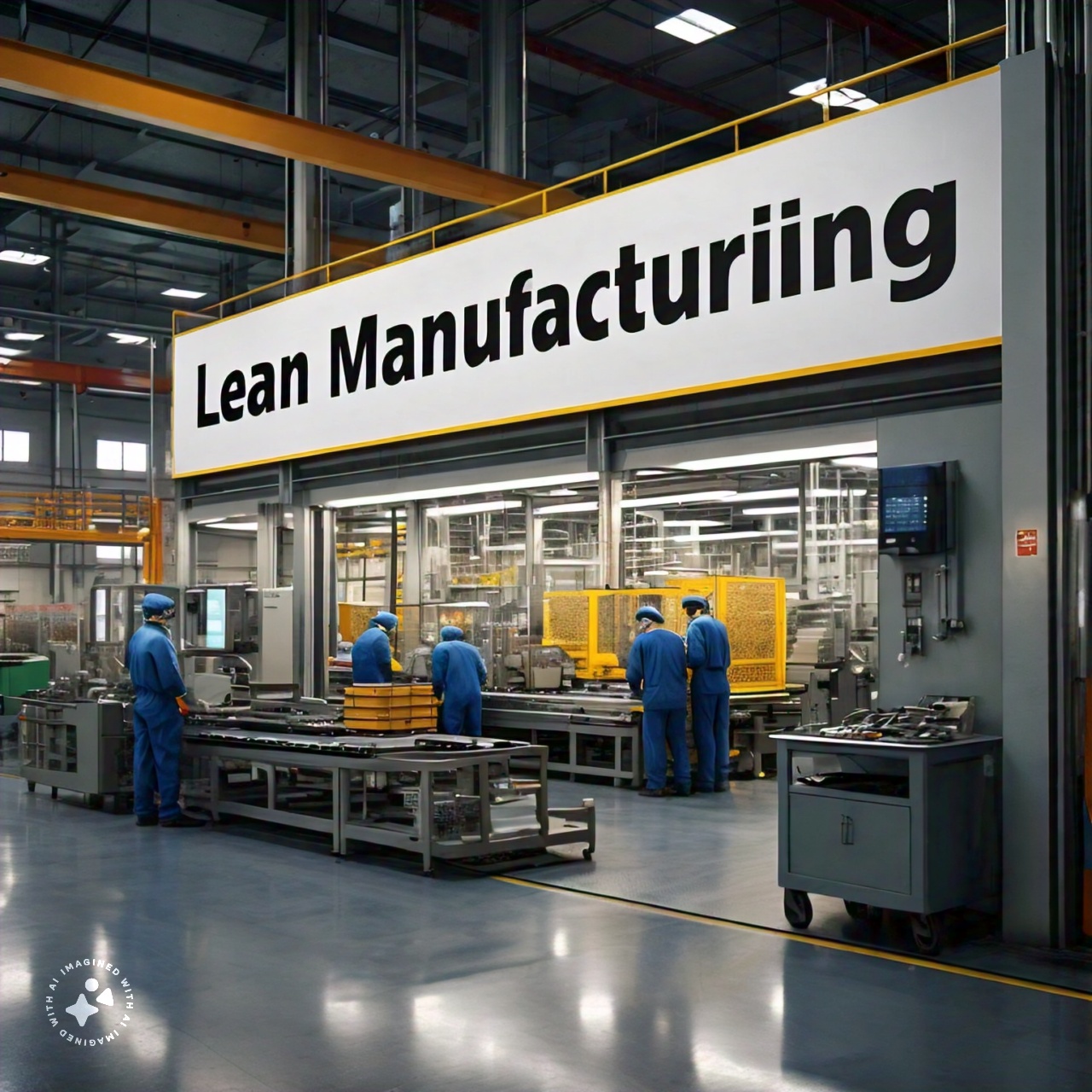Imagine a factory that thrives on efficiency, eliminates waste, and constantly strives for improvement. This is the essence of lean manufacturing, a philosophy that has revolutionized production processes worldwide. .
Stripping Away the Excess: The Core Principles of Lean
Lean manufacturing isn’t a rigid set of rules; it’s a dynamic approach focused on continuous improvement. At its heart lies the elimination of “muda,” a Japanese term for any activity that doesn’t add value to the final product. This concept encompasses a variety of wastes, including excessive inventory, unnecessary transportation, defects, overproduction, waiting time, and underutilized talent. By systematically identifying and eliminating these wastes, lean manufacturing helps companies achieve significant efficiency, quality, and profitability gains. .
Tools for Transformation: The Lean Manufacturing Arsenal
Lean practitioners employ diverse tools and techniques to achieve their goals. Here are a few key examples:
-
Just-in-Time (JIT) Production: This method focuses on receiving materials only when they’re needed for production, minimizing storage costs and waste associated with excess inventory.
-
Kanban Systems: Kanban boards visually represent the production workflow, facilitating communication and ensuring a smooth flow of materials.
-
5S Methodology: This workplace organization system emphasizes five steps: Sort, Set in order, Shine, Standardize, and Sustain. Creating a clean, organized environment, 5S reduces wasted time searching for tools and materials.
-
Kaizen: This philosophy translates to “continuous improvement” and encourages a culture of constant problem-solving and process refinement. Every employee, from the shop floor to the management level, is empowered to identify areas for improvement and implement changes. .
Benefits Beyond the Bottom Line
The impact of lean manufacturing extends far beyond cost reduction. Here are some additional advantages:
-
Enhanced Quality: By minimizing defects and streamlining processes, lean manufacturing leads to a higher quality of finished products.
-
Increased Customer Satisfaction: Faster production times and improved responsiveness to customer needs translate to happier customers.
-
Empowered Workforce: Lean principles encourage employee engagement and participation, fostering a sense of ownership and accountability.
-
Improved Safety: Lean manufacturing contributes to a safer work environment by identifying and addressing potential hazards. .
Embracing the Lean Journey
Implementing lean manufacturing requires a commitment from leadership and a cultural shift within the organization. Here are some critical steps to consider:
-
Leadership Buy-in: Successful lean transformations require strong leadership support. Leaders must champion the lean philosophy and provide resources for continuous improvement initiatives.
-
Employee Training: It is crucial to equip employees with the knowledge and skills necessary to implement lean practices. Training should cover core lean concepts, tools, and techniques.
-
Data-Driven Decision Making: Lean thrives on data. Collecting and analyzing production process data helps pinpoint improvement areas and measure the effectiveness of implemented changes.
-
Continuous Improvement: Lean is not a destination; it’s a journey. Organizations must cultivate a culture of constant improvement, where employees are encouraged to identify and address inefficiencies continuously. .
The Challenges and Considerations of Lean Implementation
While the potential benefits of lean manufacturing are undeniable, implementing it successfully requires careful planning and consideration of possible challenges.
-
Cultural Shift: Transitioning to a lean culture can be challenging, especially in organizations with established, siloed working methods. Overcoming resistance to change and fostering collaboration across departments is crucial.
-
Employee Training: Equipping employees with the necessary skills and knowledge to effectively participate in lean initiatives requires ongoing training and support.
-
Short-Term Disruptions: Implementing lean practices may involve process changes and workflow adjustments that can cause temporary disruptions to production. Effective communication and change management strategies can help mitigate these disruptions.
-
Leadership Commitment: As mentioned earlier, successful lean transformations hinge on solid leadership support. Leaders must be willing to invest time, resources, and effort into sustaining lean initiatives over the long term.
Building a Sustainable Lean Culture
Here are some tips for fostering a sustainable lean culture within your organization:
-
Focus on People: Lean is not just about processes; it’s about people. Empower employees to identify and solve problems and recognize their contributions to continuous improvement efforts.
-
Celebrate Successes: Take the time to acknowledge and celebrate successes achieved through lean initiatives. This will help maintain momentum and keep employees engaged.
-
Integration with Strategy: Align your lean efforts with your overall business strategy. This ensures that your lean initiatives are focused on achieving your organization’s long-term goals.
-
Continuous Learning: The world of lean manufacturing is constantly evolving. Encourage your employees to engage in continuous learning to stay updated on the latest best practices and tools.
Conclusion
Lean manufacturing offers to idiscover the Power of Lean for increased efficiency, improved quality, and a more decisive competitive edge. By overcoming the challenges, fostering a culture of continuous improvement, and partnering with experts like AmrepInspect, you can unlock the transformative power of lean and propel your organization toward long-term success.
FAQs
-
Is Lean Manufacturing right for my company?
Lean principles can be applied to any organization, regardless of size or industry.
-
How can I get started with Lean Manufacturing?
AmrepInspect offers a comprehensive suite of services to help you implement lean practices in your organization.


